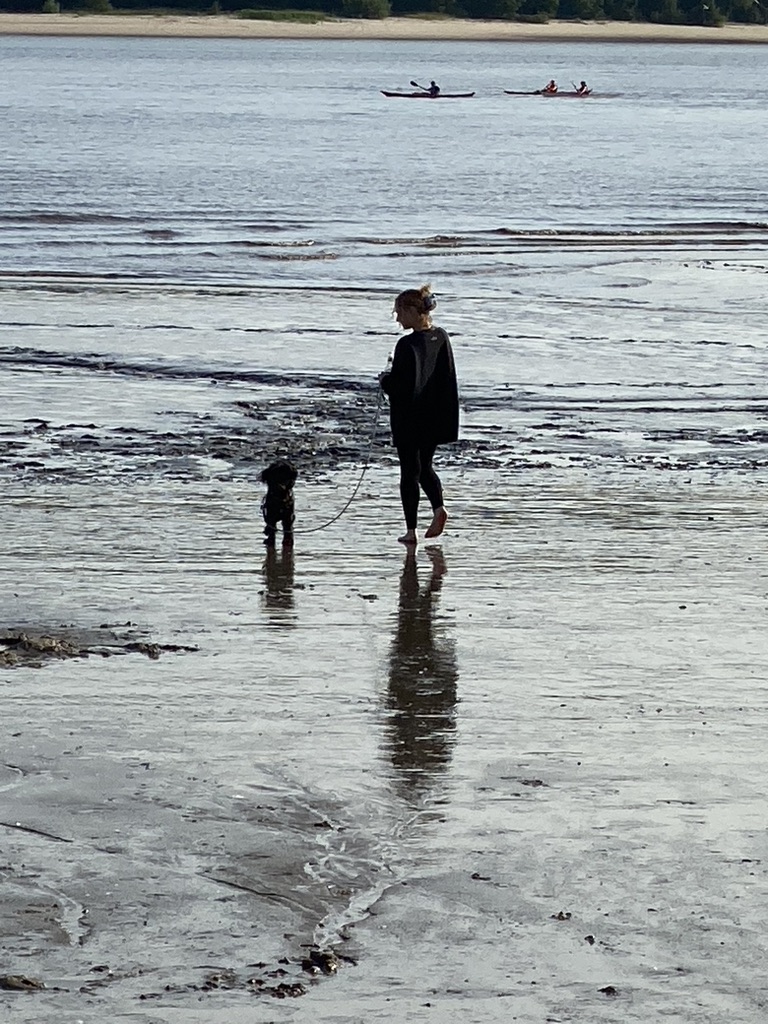What happens when we stop gripping so tightly?
There’s this quiet, invisible thread that has run through most of my life: control.
It started early, maybe in childhood, maybe even before I had the words to name it. I feel it as a need to make sense of things and to manage what feels too big, loud or unpredictable.
For someone like me, who is navigating life with Ullrich-Turner Syndrome, AuDHD, and a body that often does things in its own mysterious rhythm, control felt like the only tool I had. But sadly I had little to no control on what happened externally.
I was not allowed to decide what I wanted to wear for school and had to wear what my mum made me wear until I was 14 years old. I wanted to wear big shirts and soccer tricots, but my mother made me wear more “socially acceptable” things. They were not bad, let me be clear here, but that just wasn’t me!
I just recently realised where I use control mechanisms and thought I might share this with you. I organized, I planned, I masked and I micromanaged my schedule, my social energy, even my tone of voice. Masking, Fawning and Overdoing was the only way I knew to not get criticised.
I built routines that kept me going when nothing else did. I crafted safety with checklists, rules, and rituals (which I suck at adhering to, which makes it eben harder). Until last year, I mistook for personality traits what clearly are survival mechanisms.

But lately I’ve been asking myself:
What would happen if I didn’t have to hold it all so tightly anymore?
What if I didn’t need to plan every second of my day to be “productive enough”?
What if I stopped editing myself so much in conversations, afraid of being “too much” or “not enough”?
What if I let the laundry pile grow one more day and rested instead?
What if I let go?
In romantic relationships, things get even more complicated. I stress over things I KNOW are not important but I can’t seem to let go. I know that nobody cares is the dishwasher is emptied right after it finished or if the clothes are hung back directly after they dried. As I had a meltdown one evening after a long and stressful workday, my partner sat down with me and we talked about why these things seem so very important.
It became clear that almost never in my life I was in control. Doctors tell me about my diagnoses, so called friends gave clear instructions on what to do and what to like. I didn’t even had the chance to find out what job really could fit my needs. I was always told what to do and what to wear, and I cooperated because I didn’t want so upset anybody. This leads to hidden anger very often, and I didn’t understand that either. I just knew I was very, very mad, but I never knew why, because it seemed like I have everything under control.
Let me tell you: Control is not the same as safety.
It feels like safety, especially when you’ve learned that unpredictability often leads to pain, overstimulation, shutdowns, disappointment, judgment, misunderstanding.
For many of us, control is what allowed us to function in environments that were never designed for our needs. It helped us navigate neurotypical expectations in school, at work, in relationships. It helped us survive chronic invalidation, health challenges, or being perceived as “difficult” when we were simply different.
Control kept me upright, but it also kept me disconnected from myself and from my body’s cues, spontaneous joy, real intimacy and true rest. I think my need for control stole my ability to live in the present moment.
I was friends with people who weren’t really interested in me. I had to function like the leader of the group wanted me to, and everyone else was too afraid. But that was kind of predictable. I knew what I had to to, what to expect and how to behave. Sadly they left me when I started to voice my needs. I was trying to actively control what happens and had to face the bitter truth that some friendships come with clear expectations.
🌧 So, what now?
I don’t want to throw away all structure. My planner still brings me peace. Lists help me externalise executive function and get things off my mind sometimes. My rhythms and rituals are sacred when they’re flexible.
The big difference is:
I’m learning to ask myself:
🌀 Is this structure supporting me?
🌀 Or am I shrinking myself to fit it?
I really hope letting go doesn’t mean letting life fall apart. I hope it means allowing life to happen without editing every second of it.
I hope it means trusting that my body knows what’s best for me. That not everything has to be prepared for, predicted, prevented and that it’s okay to be in progress.
Sometimes control is a trauma response or a strategy with it’s rots in autism or ADHD
It may be an echo from childhood. But sometimes, it’s just… fear dressed up as certainty.
And when you notice that (with gentleness, not shame) something begins to shift.
📝 Journaling Prompts
1. What part of my life do I feel most afraid to let go of control in?
2. Where do I confuse control with safety?
3. What parts of my daily routine feel nourishing, and which ones feel rigid or draining?
4. What do I fear might happen if I stopped trying so hard?
5. Can I remember a moment when letting go actually led to something beautiful?
Until next time – stay messy, mindful and magical ✨
Embrace the X
Leave a Reply
You must be logged in to post a comment.